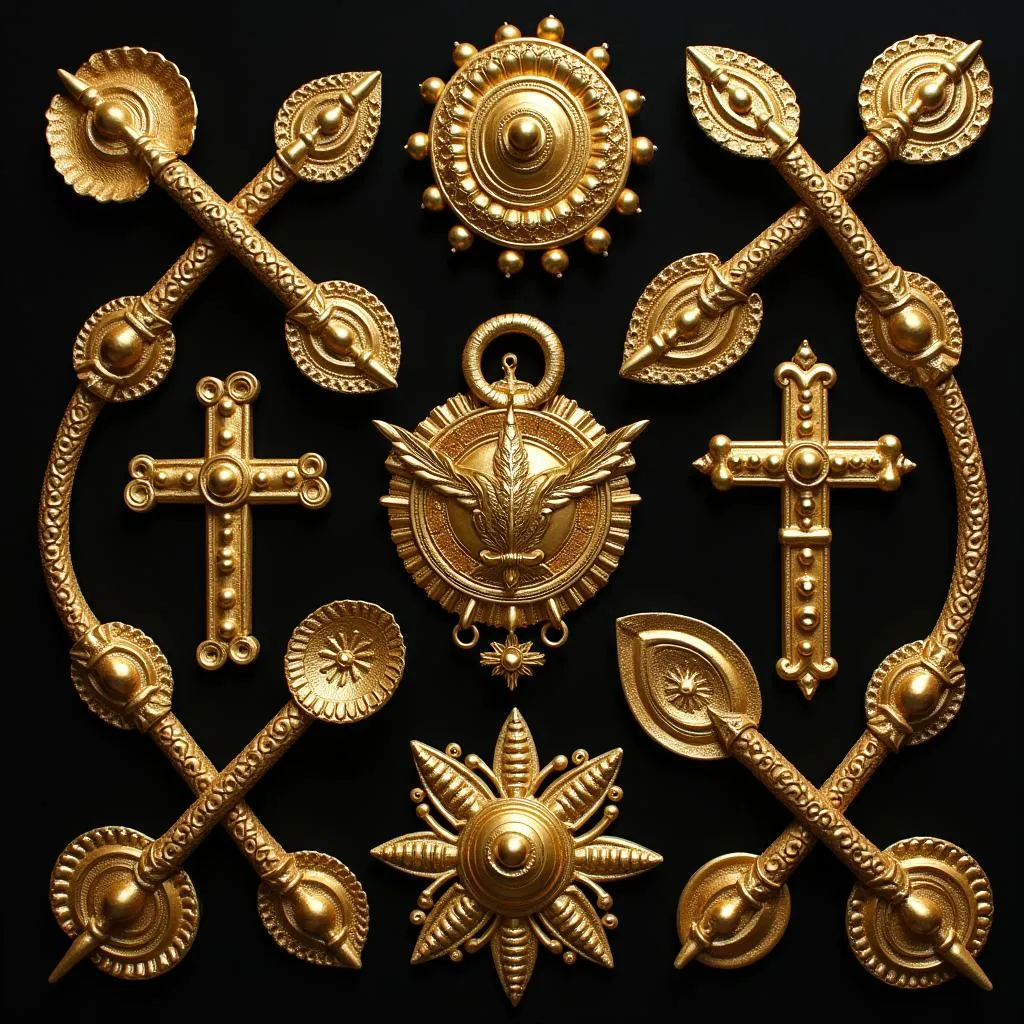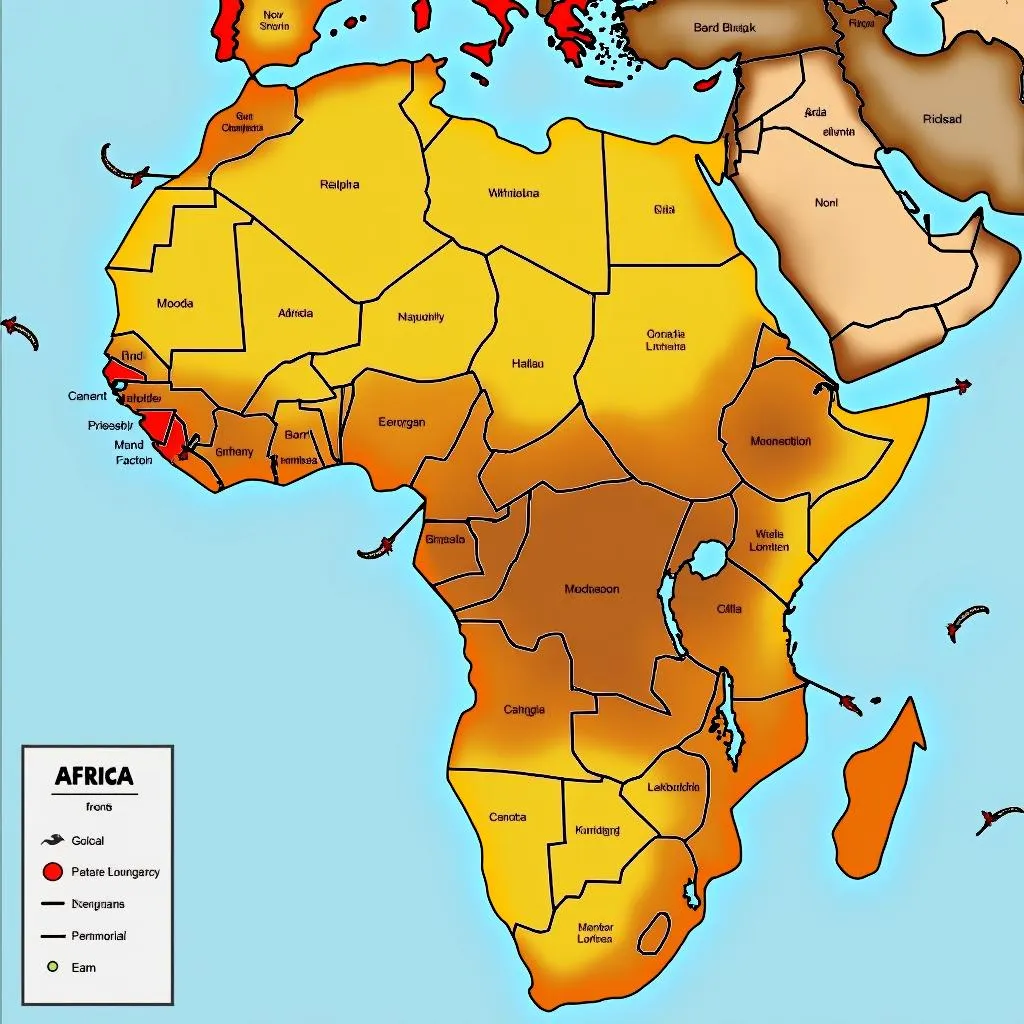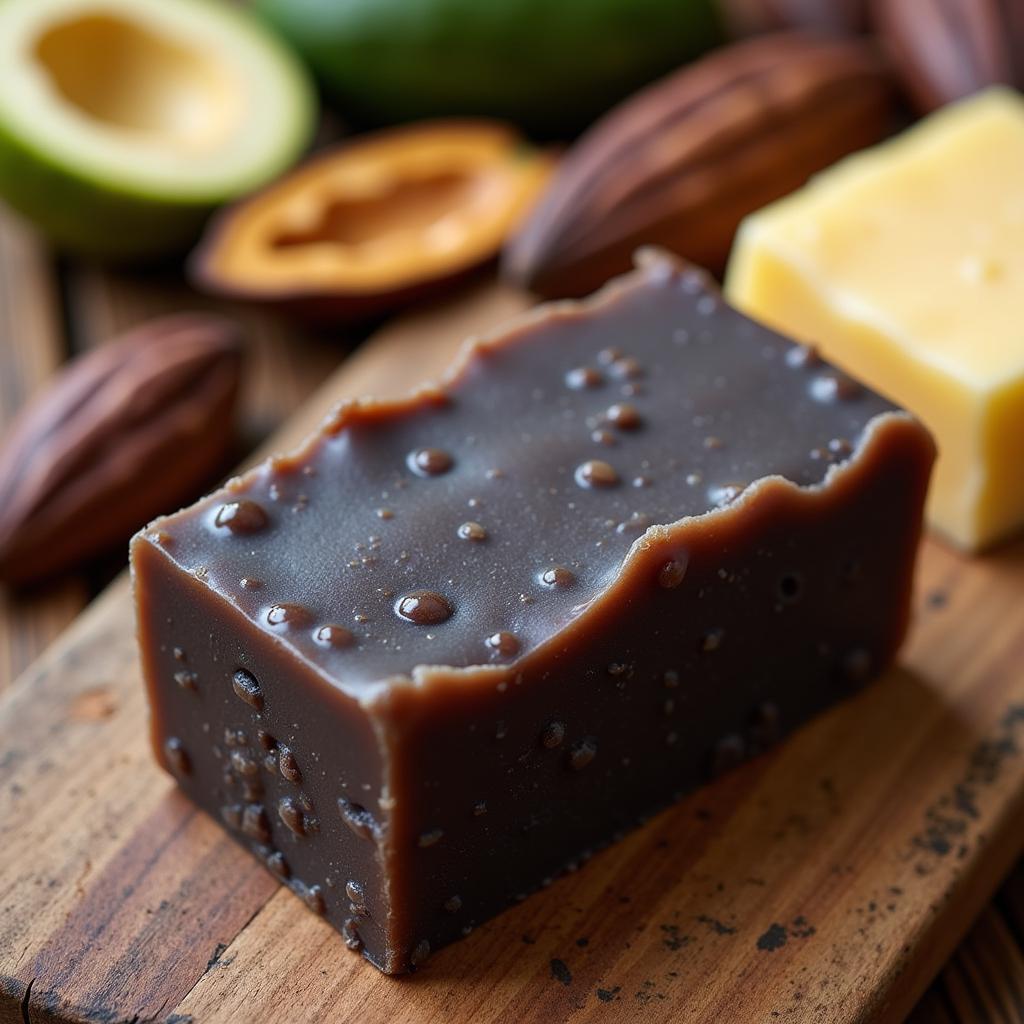African Gold Facts: Uncovering the Glittering History and Significance of Africa’s Precious Metal
Africa has long been associated with gold, its glittering sands and ancient mines whispering tales of wealth, power, and cultural significance. From the ancient empires of Ghana, Mali, and Songhai to the modern-day mining industry, gold has played a pivotal role in shaping the continent’s history, economy, and identity. This article delves into the fascinating world of African gold, exploring its rich history, cultural significance, and enduring impact on the lives of people across the continent.
A History of Gold in Africa: From Ancient Mines to Modern-Day Extraction
The story of gold in Africa begins thousands of years ago, with evidence of mining dating back to the 3rd millennium BC in Egypt. These early mines, often located in the Nubian desert, produced gold for jewelry, ornamentation, and ceremonial purposes. As trade routes expanded across North Africa, gold became a vital commodity, fueling the rise of powerful empires in the Sahel region.
The Rise and Fall of African Gold Empires
The empires of Ghana, Mali, and Songhai, known for their vast gold deposits, became centers of trade and wealth. The legendary city of Timbuktu, located in present-day Mali, was a major hub for gold merchants and scholars. The gold trade contributed to the development of these empires, but also led to their eventual decline as European powers sought to control the valuable resource.
African Gold: More Than Just a Commodity
Beyond its economic value, gold holds a profound cultural significance in Africa. In many traditions, it symbolizes wealth, power, and prestige. Gold jewelry, ornaments, and artifacts are often passed down through generations, representing family history, cultural heritage, and a connection to the ancestors.
The Cultural Significance of Gold in Africa
“Gold is more than just a precious metal in African culture,” says Dr. Amara Diop, an anthropologist specializing in African history and cultural studies. “It is a symbol of beauty, strength, and spiritual power, deeply intertwined with the very fabric of our society.”
For example, in many West African cultures, gold is used in ceremonies and rituals. It is believed to have protective and healing properties, and is often used to adorn religious figures and sacred spaces.
The Modern-Day Gold Rush: Challenges and Opportunities
Today, Africa remains a major producer of gold, with countries like South Africa, Ghana, and Mali accounting for a significant share of global production. However, the gold mining industry in Africa faces various challenges, including environmental degradation, labor exploitation, and conflicts over land rights.
The Need for Sustainable and Ethical Mining
“The African gold industry has immense potential, but we must ensure it benefits communities and the environment,” emphasizes Mr. Amani Ndugu, an environmental advocate and founder of the African Green Initiative. “Responsible mining practices are crucial for ensuring a sustainable future for both the industry and the continent.”
Despite the challenges, the gold industry also presents significant opportunities for economic development and job creation in Africa. However, it is imperative to prioritize ethical and sustainable practices to ensure long-term benefits for all stakeholders.
African Gold: A Legacy of Wealth and Cultural Identity
From its ancient roots to its modern-day significance, African gold continues to captivate the world. Its glittering history, cultural significance, and economic value make it a powerful symbol of the continent’s rich heritage and vibrant culture. Understanding the story of African gold provides valuable insights into the continent’s past, present, and future.
Frequently Asked Questions
Q: Where in Africa is the most gold found?
A: South Africa is known as the world’s largest gold producer, with significant reserves in the Witwatersrand region.
Q: How does gold mining impact the environment in Africa?
A: Gold mining can lead to deforestation, soil erosion, water pollution, and displacement of local communities.
Q: What is being done to promote responsible gold mining in Africa?
A: Several initiatives are underway to promote sustainable and ethical gold mining practices, including stricter regulations, certification schemes, and community engagement programs.
Q: How does the gold trade impact African economies?
A: Gold exports are a significant source of revenue for many African countries, contributing to economic growth and development. However, fluctuations in global gold prices can also create economic instability.
Q: What are some of the cultural traditions associated with gold in Africa?
A: Gold is widely used in traditional jewelry, ornaments, and religious artifacts. It is also associated with power, status, and spiritual protection in many African cultures.
 African Gold Mining: A Legacy of Riches and Challenges
African Gold Mining: A Legacy of Riches and Challenges
 The Beauty and Significance of African Gold Jewelry
The Beauty and Significance of African Gold Jewelry
 The Historic Gold Trade Routes of Africa
The Historic Gold Trade Routes of Africa
African Gold: A Legacy of Wealth and Cultural Identity
The story of African gold is a captivating tapestry woven with threads of history, culture, and economic development. From its ancient mines to its modern-day significance, gold continues to shape the continent’s destiny. By understanding the multifaceted role of gold in African Life, we gain a deeper appreciation for the continent’s rich heritage and its ongoing journey towards prosperity and progress.



